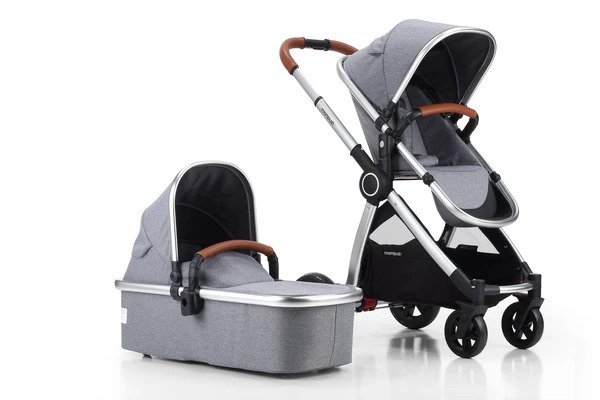9 Tips for Dealing With an Angry Baby
Babies can be incredibly difficult to handle when they’re in an angry mood. You might feel like you don’t know what to do, but there are things you can do to make the situation better, and also prevent it from happening again in the future. The first step is to understand why the baby is angry, and how you can prevent this from happening again. After all, there’s nothing worse than dealing with an angry baby multiple times per day! The following nine tips will help you deal with an angry baby, whether it’s your own or one of your friends or family members.
1) Never Take The Blame
Being a parent is hard, sometimes you’re just going to lose your cool. You are 100% not alone in that department. However, it’s important to remember that if you lose your cool with your baby—even for a minute—he or she will remember it forever. Because as babies get older, they begin to develop their sense of self and their world starts to make more sense. When we take responsibility for our mistakes and apologize openly and honestly, our children feel safe with us because they see themselves in us; they know we are trying our best even when things go wrong.
2) Never Try To Reason
Babies are irrational—it’s just part of their development. If you try to reason with them, you’ll be met with unhappy tears and screams; if you reason with them later, they will have no recollection of what you tried to explain in that moment. It can be frustrating, but it’s important to remember that there is no sense in trying to reason with your child when he or she is angry—if anything, ignoring it and walking away will actually help diffuse a tantrum.
3) Always Stay Calm
Babies cry when they’re upset, which can be frustrating for parents. If you find yourself getting frustrated, take a moment to remind yourself that crying is a normal part of development. If your baby is crying because she wants to eat or needs to be changed, try one of these soothing techniques: Make sure your baby’s face and hands are dry. Swaddle her in a blanket; don’t overheat her with clothes or covers. Rock or hold her firmly but gently. Pat or rub her back in smooth circles without sudden movements that could startle her if she’s drowsy.
4) Make No Accusations
Babies are upset for a lot of reasons, but once you find out what it is, make sure not to accuse them of anything. That can have a negative effect and might lead to your baby being even more upset. For example, if your baby was just dropped off at daycare after taking a nap at home, he or she may be angry because they were alone while they napped—you need to get used to that separation so there’s no surprises when you go back to work. If your baby is looking around angrily but not babbling or making any other sounds, it could be hunger—so feed them before responding further. Just remember: don’t accuse!
5) Repeat – It Will Get Better
The first couple of months with a new baby can be tough, even when you’ve been through it before. Your baby’s primary caretaker (whether that’s you or your partner) might feel at times like he or she is on an emotional roller coaster with little off-ramp to get off and have some time to relax. Babies need routine and their caregivers need sleep, so it may take a few weeks for both of those things to balance out. As long as your baby is healthy and growing in every other way, don’t worry too much about a few extra crying sessions during each day. They will lessen as time goes on, giving everyone some much-needed rest at night.
6) Know Your Triggers
First, you need to know what makes your baby angry. All babies are different, so there’s no one thing that all of them will react negatively to. For example, one infant might become upset when his parents talk on their cell phones, while another is bothered by sudden loud noises and even a third gets worked up by car rides or people touching her face. Identifying your baby’s triggers can help you prevent anger in advance and avoid having to deal with an angry infant once she starts crying (which could be embarrassing or uncomfortable). Consider keeping a journal of your baby’s behavior so you can monitor her pattern of upsets over time.
7) Set Boundaries (Like a Child)
If you’re a parent, you know that kids are hard-wired to test boundaries. Think about it: when your baby was born, he didn’t know much about his world—and quickly learned that if he made enough noise or cried long enough, someone would come to his aid. Well, now it’s time to show him how things really work. Instead of responding every time he whines or screams (even though he thinks that response is coming), give him a few moments of silence and see what happens. If necessary, leave your child in his crib and walk out of the room; most babies will quickly stop screaming when they realize no one is going to come rescue them!
8) Talk About Their Feelings, Not Yours
Every baby is different, but one thing they all have in common is their feelings. Rather than focusing on your emotions, which you can’t fix right now anyway, try to talk about your baby’s feelings. For example, I can see that you’re angry at me right now. Is there anything I can do to help? If they’re hungry or need a diaper change or have a dirty diaper and are upset about it because they can’t tell you…it helps to acknowledge that their needs are legitimate. By responding with empathy, you’ll be able to soothe them quickly and move on with whatever it was that made them upset in the first place!
9) Give Them Time Out If Needed
Time out is a form of discipline used on babies and toddlers. Time out is where you take your child to a time-out chair or other designated area, with no distractions. You can say something like You need time to calm down. In time-out, your child sits in a chair or lies on a mat until they are ready to behave well again. It helps to think about what caused your baby’s angry behavior so that you can try and avoid it in future. Make sure you only use time-out when necessary and don’t leave them there longer than a minute or two at first. If they start crying, let them know that if they calm down quickly then you will come back and talk to them.















